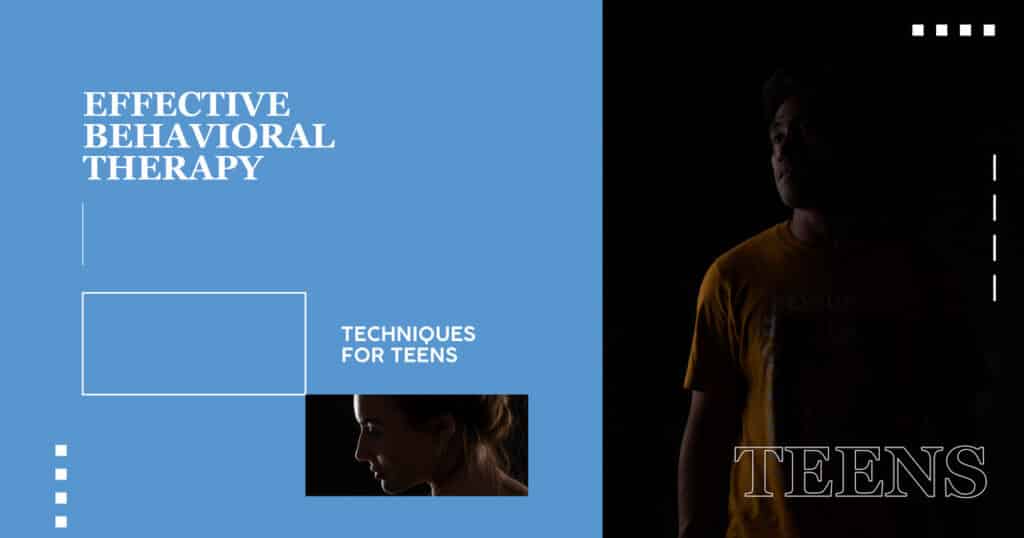Introduction to Family Therapy
The teenage years are a time of significant change and development. While many teens navigate this period without major issues, some struggle with emotional, behavioral, and mental health challenges. Family therapy can be a valuable tool to address these challenges, improve communication, and strengthen family bonds. In this guide, we’ll explore the signs that indicate your teen may need family therapy and how it can benefit your family unit.
What is Family Therapy?
Family therapy is a form of therapy that helps family members improve communication and resolve conflicts. It involves working with a family therapist who guides the entire family through discussions and exercises to address specific issues and improve overall family dynamics. This therapeutic process aims to create a supportive environment where each family member can express themselves and work towards healthier relationships. Family therapy sessions are crucial in facilitating these discussions.
Why Family Therapy?
Improving Communication
Effective communication is essential for a healthy family. Family therapy helps family members learn to communicate more openly and honestly, reducing misunderstandings and fostering a supportive environment. Training in fundamental communication skills is a key part of this process.
Resolving Conflicts
Families often experience conflicts that can strain relationships and impact mental health. Family therapy provides strategies for resolving disputes constructively and healthily. This approach to family therapy teaches conflict resolution skills that can be applied in daily lives.
Strengthening Bonds
Participating in family therapy can strengthen the bonds between family members. Working together to overcome challenges promotes a sense of unity and resilience. Family therapy approaches like Functional Family Therapy focus on building a cohesive family unit.
Signs Your Teen May Need Family Therapy
Behavioral Changes
Significant changes in your teen’s behavior can be a red flag. This can include:
- Aggression: Increased anger or hostility towards family members.
- Withdrawal: Isolating themselves from family and friends.
- Defiance: Refusing to follow the rules or showing disrespect towards authority figures.
Emotional Distress
Emotional distress can manifest in several ways, such as:
- Anxiety: Excessive fear about everyday situations.
- Depression: Persistent sadness, lack of interest in activities, or feelings of hopelessness.
- Mood Swings: Extreme and rapid changes in mood.
Academic Issues
Problems at school can be a sign that your teen is struggling. This can include:
- Declining Grades: A noticeable drop in academic performance.
- Truancy: Skipping school or frequent absenteeism.
- Disciplinary Problems: Getting into trouble with teachers or school authorities.
Substance Abuse
Experimentation with drugs or alcohol is a serious sign that your teen may need help. Look for:
- Changes in Behavior: Secretive behavior, lying, or stealing.
- Physical Symptoms: Bloodshot eyes, unusual smells, or changes in appetite or sleep patterns.
- Peer Influence: Hanging out with a new crowd that engages in risky behaviors.
Family Conflict
Ongoing conflict within the family can indicate a need for therapy. This can include:
- Frequent Arguments: Constant fighting between family members.
- Lack of Communication: Family members avoiding conversations or not talking to each other.
- Blame and Criticism: A hostile atmosphere where family members constantly blame or criticize each other.
Trauma or Loss
Experiencing trauma or loss can significantly impact a teen’s mental health. This can include:
- Death of a Loved One: Struggling to cope with the loss of a family member or a friend.
- Divorce or Separation: Difficulty adjusting to parents’ separation or divorce.
- Abuse: History of physical, emotional, or sexual abuse.
How Family Therapy Can Help
Addressing Root Causes
Family therapy helps identify underlying issues contributing to your teen’s challenges. By understanding the root causes, the therapist can develop a tailored treatment plan. This can include addressing mental health conditions and problematic behaviors.
Building Coping Skills
Therapists teach healthy coping skills that teens and family members can use to manage stress and emotional difficulties. These skills are valuable tools for maintaining mental health in the long term and can be integrated into healthy family dynamics.
Creating a Supportive Environment
A supportive home environment is crucial for teen mental health. Family therapy helps create an atmosphere where teens feel safe, understood, and supported. This supportive environment fosters resilience in teens and promotes healthier interactions among family members.
The Process of Family Therapy
Initial Assessment
The therapist will conduct an initial assessment to understand the family’s dynamics and identify the key issues that must be addressed.
Goal Setting
The family will set specific goals for therapy with the therapist. These goals will guide the sessions and measure progress.
Regular Sessions
Family therapy typically involves regular sessions, during which the therapist guides discussions, teaches new skills, and helps the family work through their issues. These family therapy sessions are essential for achieving long-term benefits.
Homework Assignments
Families may be given homework assignments to practice the skills learned in therapy and apply them to real-life situations. This helps reinforce healthy coping skills and improves communication between family members.
Benefits of Family Therapy
Enhanced Communication
Improved communication helps family members understand each other better and reduces misunderstandings.
Conflict Resolution
Learning practical conflict resolution skills helps families address disagreements constructively.
Emotional Support
Family therapy provides a healthy environment for emotional expression, helping teens feel supported and understood.
Stronger Relationships
By working through challenges together, family members can strengthen their relationships and build a more resilient family unit.
How to Get Started with Family Therapy
Finding a Qualified Therapist
Look for licensed therapists specializing in family therapy with experience working with teens. Healthcare providers or school counselors can provide helpful recommendations. It is important to choose a mental health professional with specialized training in family therapy.
Initial Consultation
Schedule a consultation with the therapist to discuss your family’s needs and determine whether they fit well. This initial consultation is crucial for setting the foundation for the therapeutic process.
Commitment to the Process
Family therapy requires commitment from all members. Attending sessions regularly and actively participating in the process is important to achieving the best results.
FAQs
Q: How long does family therapy usually last?
A: The duration varies depending on the issues being addressed and the goals of the therapy. Some families may see improvement in a few months, while others may need longer-term support.
Q: Does insurance cover family therapy?
A: Many insurance plans cover family therapy, but you must check with your provider for specific details.
Q: Can family therapy be combined with other forms of treatment?
A: Yes, family therapy can be combined with individual therapy, Cognitive-behavioral therapy (CBT), or medication to provide a comprehensive treatment plan.
Q: What should we expect during the first session?
A: The first session typically involves an assessment of the family’s dynamics and a discussion of therapy goals and expectations.
Conclusion
Recognizing the signs that your teen may need family therapy is crucial for supporting their mental health and improving family dynamics. Family therapy offers a structured and supportive approach to addressing emotional, behavioral, and mental health challenges. By improving communication, resolving conflicts, and building a supportive home environment, family therapy can help your teen thrive. If you or a loved one is considering family therapy, seek out a qualified professional to guide you through this transformative process.
Empower Your Family with Therapy
If you or someone you know is considering family therapy, don’t hesitate to seek professional guidance. The proper support and a tailored approach can make all the difference in your family’s mental health journey.




